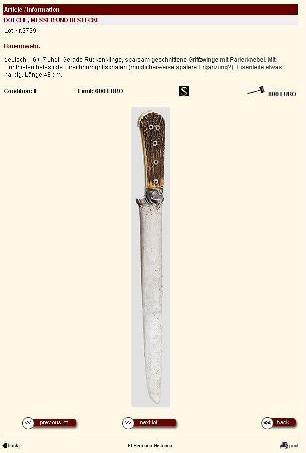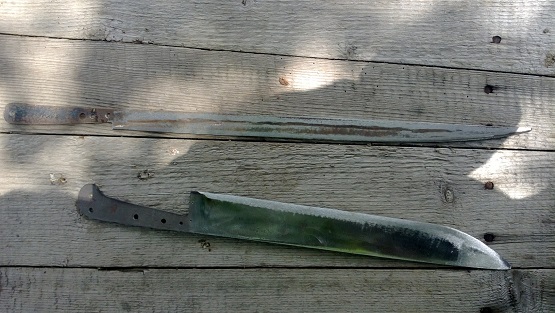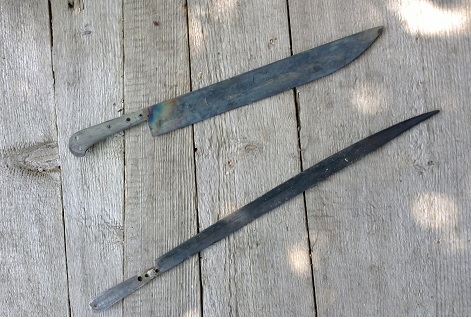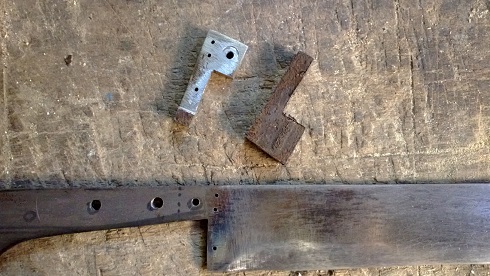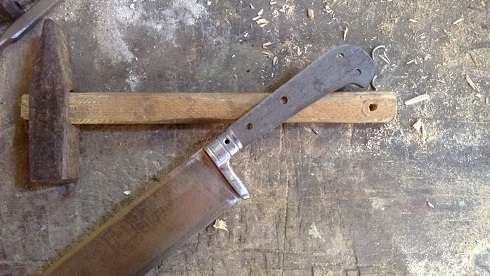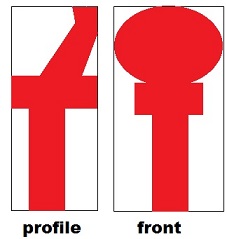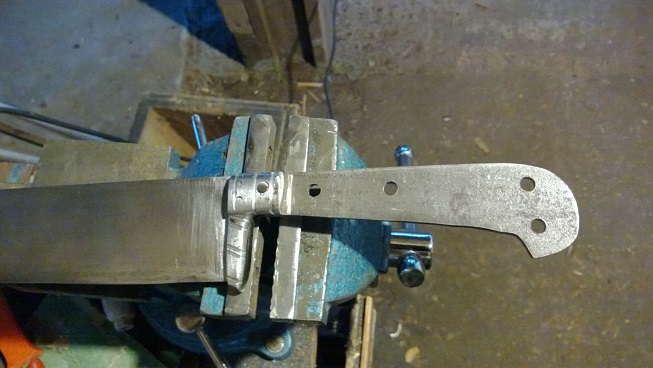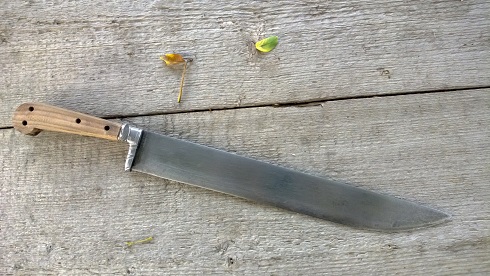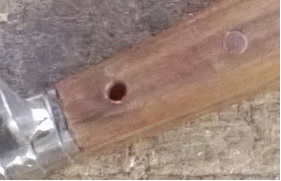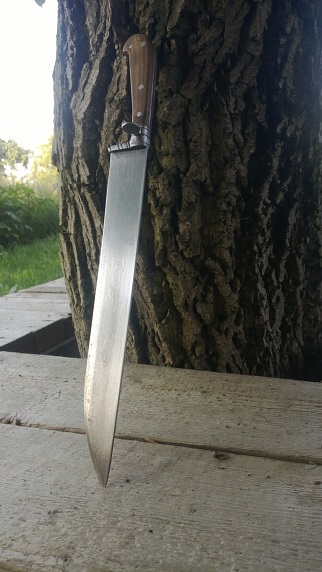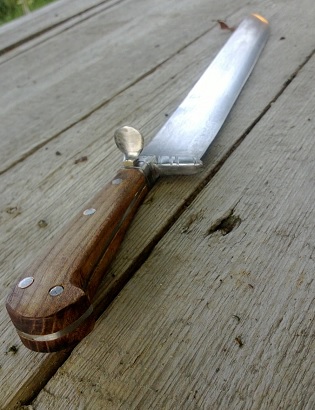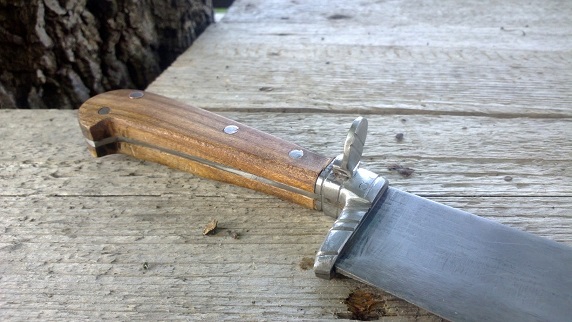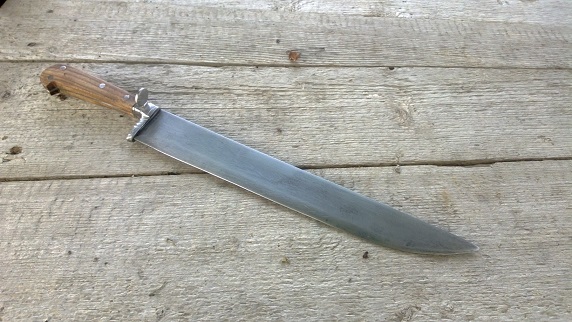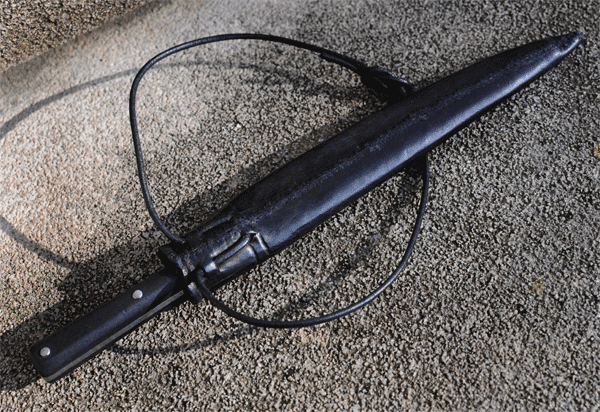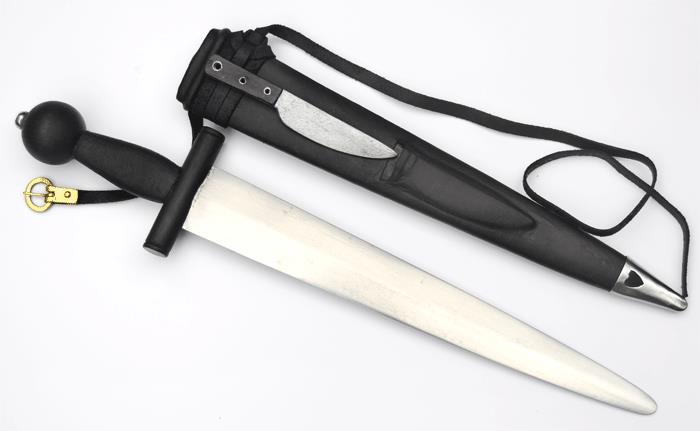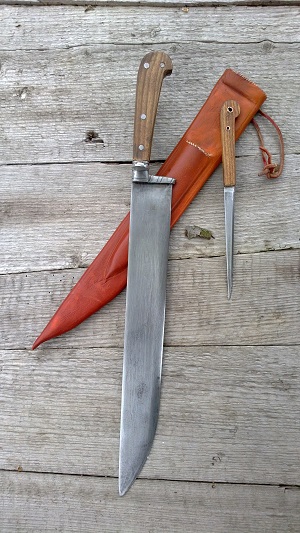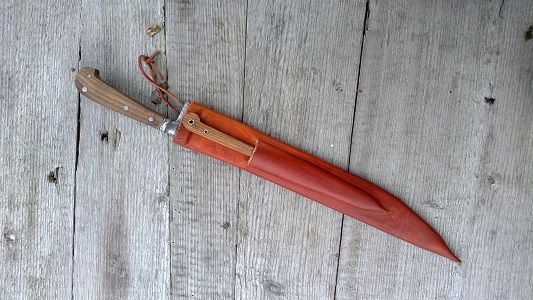I took my inspiration from the original auctioned some time back at HH, but I decided to go for a wider blade. Originally I planned to use bronze or brass on the hilt, but I did not find any historic evidence for that (it had been discussed elsewhere on this forum), so I went for a mild steel. The original piece has its handle made of antler, but the description says it might be a later replacement. I will use some hard-wood - an elm or plum.
1st picture: the original.
2nd: blade cut from the spring steel (N 14260) and roughly shaped by angle grinder (together with another one, for a different later project), with holes drilled for riveting the hilt components and the nagel. Later I have re-profiled the blade a little, making it more narrow to the point, but did not take picture of that.
3rd: blades were hardened and quenched.
4th: I started making steel components for the hilt. it will be made from two halves riveted ant three points, plus secured by the nagel. Here you can see the first half with a recess already made, to accommodate the blade. another half is only cut from a piece of steel. Both were then shaped to match each other, and the blade, and riveted.
5th: they were riveted to the blade. then I have shaped them with grinder and hand files to the final shape (I can still do some re-shaping at the end, when I assemble the whole hilt), and cleaned by a sand-paper.
next steps: nagel, wood scales, cleaning and polishing.
I will be grateful for any comments, advices.
